第177章 THE FIFTH ENNEAD(6)
11.Since there is a Soul which reasons upon the right and good-for reasoning is an enquiry into the rightness and goodness of this rather than that- there must exist some permanent Right, the source and foundation of this reasoning in our soul; how, else, could any such discussion be held? Further, since the soul's attention to these matters is intermittent, there must be within us an Intellectual-Principle acquainted with that Right not by momentary act but in permanent possession.Similarly there must be also the principle of this principle, its cause, God.This Highest cannot be divided and allotted, must remain intangible but not bound to space, it may be present at many points, wheresoever there is anything capable of accepting one of its manifestations; thus a centre is an independent unity; everything within the circle has its term at the centre; and to the centre the radii bring each their own.Within our nature is such a centre by which we grasp and are linked and held; and those of us are firmly in the Supreme whose collective tendency is There.
12.Possessed of such powers, how does it happen that we do not lay hold of them, but for the most part, let these high activities go idle- some, even, of us never bringing them in any degree to effect?
The answer is that all the Divine Beings are unceasingly about their own act, the Intellectual-Principle and its Prior always self-intent; and so, too, the soul maintains its unfailing movement;for not all that passes in the soul is, by that fact, perceptible;we know just as much as impinges upon the faculty of sense.Any activity not transmitted to the sensitive faculty has not traversed the entire soul: we remain unaware because the human being includes sense-perception; man is not merely a part [the higher part] of the soul but the total.
None the less every being of the order of soul is in continuous activity as long as life holds, continuously executing to itself its characteristic act: knowledge of the act depends upon transmission and perception.If there is to be perception of what is thus present, we must turn the perceptive faculty inward and hold it to attention there.Hoping to hear a desired voice, we let all others pass and are alert for the coming at last of that most welcome of sounds: so here, we must let the hearings of sense go by, save for sheer necessity, and keep the soul's perception bright and quick to the sounds from above.
SECOND TRACTATE.
THE ORIGIN AND ORDER OF THE BEINGS.
FOLLOWING ON THE FIRST.
1.The One is all things and no one of them; the source of all things is not all things; all things are its possession- running back, so to speak, to it- or, more correctly, not yet so, they will be.
But a universe from an unbroken unity, in which there appears no diversity, not even duality?
It is precisely because that is nothing within the One that all things are from it: in order that Being may be brought about, the source must be no Being but Being's generator, in what is to be thought of as the primal act of generation.Seeking nothing, possessing nothing, lacking nothing, the One is perfect and, in our metaphor, has overflowed, and its exuberance has produced the new:
this product has turned again to its begetter and been filled and has become its contemplator and so an Intellectual-Principle.
That station towards the one [the fact that something exists in presence of the One] establishes Being; that vision directed upon the One establishes the Intellectual-Principle; standing towards the One to the end of vision, it is simultaneously Intellectual-Principle and Being; and, attaining resemblance in virtue of this vision, it repeats the act of the One in pouring forth a vast power.
This second outflow is a Form or Idea representing the Divine Intellect as the Divine Intellect represented its own prior, The One.
This active power sprung from essence [from the Intellectual-Principle considered as Being] is Soul.
Soul arises as the idea and act of the motionless Intellectual-Principle- which itself sprang from its own motionless prior- but the soul's operation is not similarly motionless; its image is generated from its movement.It takes fulness by looking to its source; but it generates its image by adopting another, a downward, movement.
This image of Soul is Sense and Nature, the vegetal principle.
Nothing, however, is completely severed from its prior.Thus the human Soul appears to reach away as far down as to the vegetal order: in some sense it does, since the life of growing things is within its province; but it is not present entire; when it has reached the vegetal order it is there in the sense that having moved thus far downwards it produces- by its outgoing and its tendency towards the less good- another hypostasis or form of being just as its prior (the loftier phase of the Soul) is produced from the Intellectual-Principle which yet remains in untroubled self-possession.
2.To resume: there is from the first principle to ultimate an outgoing in which unfailingly each principle retains its own seat while its offshoot takes another rank, a lower, though on the other hand every being is in identity with its prior as long as it holds that contact.
In the case of soul entering some vegetal form, what is there is one phase, the more rebellious and less intellectual, outgone to that extreme; in a soul entering an animal, the faculty of sensation has been dominant and brought it there; in soul entering man, the movement outward has either been wholly of its reasoning part or has come from the Intellectual-Principle in the sense that the soul, possessing that principle as immanent to its being, has an inborn desire of intellectual activity and of movement in general.